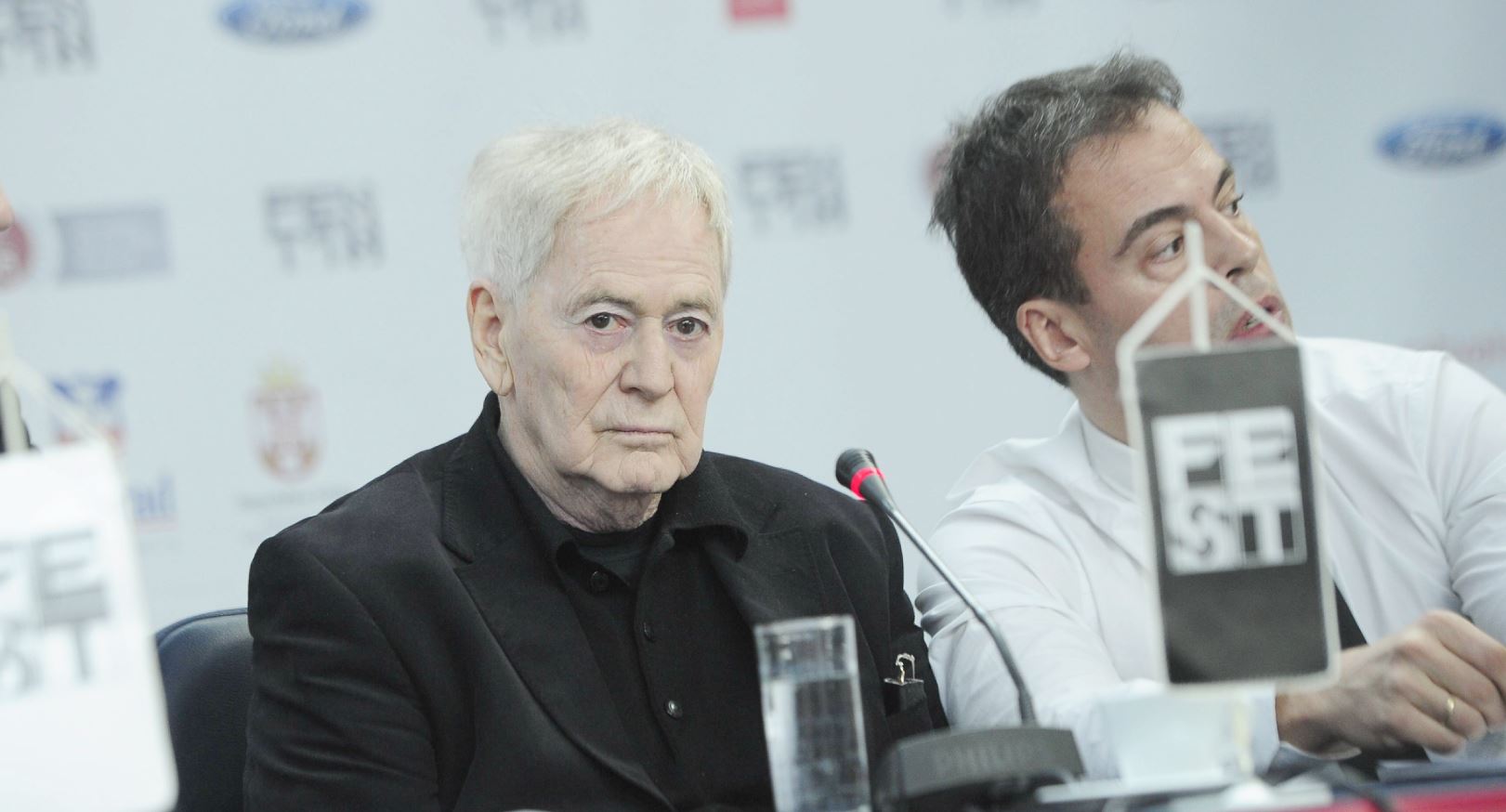What do awards mean to you, after all those decades of making films and so many awards?
Our job is to try to say something to the audience that we consider important and to do it in an entertaining way. Awards are important as they help us to reach that goal by creating an interest in our films.
You had a meeting last summer with Christopher Hampton. Do you prepare a new film?
He is a fantastic writer who wrote excellent script based on a Hungarian novel by Sandor Marai. We want to work together, but the author’s rights for the novel are in the States, so we can not obtain them, which is a pitty. But, I was happy to meet him, he is a great writer.
You dealt with historical themes a lot, and you often observed them from the point of view of small, ordinary people. How much is that personal emotion important for film art, how important it is for a film to be engaged in these human themes?
You live in the same part of the world as I - I was born in Hungary, central Europe, former Austro-Hungarian Empire, I do not know much about your history, but I know that it is similar to ours. I must say something, and I think you will agree with that - there is no Hungarian family which was not affected by some political or historical change in the 20th century. Whether it was WWI, revolution, WWII, Stalin Era, never mind, every family used to live under the pressure of the ideology and every ideology wanted to change our lives in its own manner. This is a life experience of my grandfather, my parents, as well as mine, and there is nothing else to say. And because nobody in my family was a king, a prime minister, a governor, I can only speak about ordinary people.
What do you think about contemporary cinematography and what is its role today? What can a film do now and what it can not do?
It is a very important theme that I often reflect upon. But I think that there is no such thing as a contemporary film, and that there are only two types of films - good and bad. Of course, it is a question of taste how we decide which is good, and which is not, but a good one is the one which carries human values, which tells us something from the people’s experience. As a child who is given a vaccine against some desease, a good film can help us as preventive care - if we experience something we saw on film and we remember that we are not alone. For me, this is what a good film is about. Plus, it has to be entertaining. Buñuel said that a film could be good, fantastic, full of talent, but it must not be boring. If a film is boring, then it does not matter what it speaks about.
What about today?
When I started to study film at the end of 1950s, beginning of 1960s, film was becoming important art and it reached its peak with authors like Kurosawa, Ozu, Vittorio de Sica, Buñuel, Bergman, so we had an opportunity to learn from fantastic people. Film with a message always had a big audience. Now at your homes you have at least 60 to 80 TV channels. Why would you go to the cinema if it rains or snows, if you always have something on TV? A five year old child can press the button and see whole history of film from Eisenstein to Griffith, over De Sica and Bergman. Situation is not an easy one, but I am sure that it will change. It will probably be as it has been with literature - important books are printed in several hundreds of copies, the others are printed in several hundreds of thousands of copies. But these important books are on shelves and we know that they belong to our culture. Maybe the films will not be screened before hundreds instead of thousands of people, but I am sure that film will continue to exist and that the talented colleagues will make great films. But we must be aware of the reality and internet and I do not know what comes tomorrow. I hope that there are some students in your film schools who will make films in the future as great as “Man is not a Bird“ (Čovek nije tica) or „Love Affair, or the Case of the Missing Switchboard Operator“ (Ljubavni slučaj ili tragedija službenice PTT) by Dušan Makavejev.








